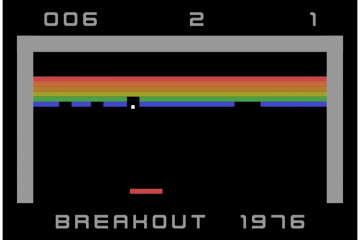Companies have figured out that they should be hiring engineering talent from a global talent pool, but many are struggling to adapt their interviewing to hire global talent effectively. Should you change your interview process to accommodate remote engineers? Not necessarily. But, if you don’t change how you interpret the results of your interview process, you are definitely missing a lot of incredible talent. Below are the 5 most important areas where we see companies making fixable mistakes during the interview process.

- Cultural Differences Can Send Up False Red Flags
We recently surveyed a group of Costa Rican Telescoped certified engineers and found that NONE of them were comfortable using the word “expert” to describe their technical skills. Even when they had more than a decade of combined experience and when asked about their preferred tech stack, they felt uncomfortable using the term citing the fact that it is always possible to learn more and that an attitude of continuous improvement was important.
The culture in Costa Rica tends to be significantly more humble than the culture in the United States. If you are asking engineers to describe their experience using adjectives rather than going into the details of their previous work experience, you may come away with an inaccurate understanding of their capabilities.
This is just one cultural difference in a single region of the world that can exist, but there is an unending number that can occur. Would you discard a US job applicant that listed her marital status and number of children on her resume for a lack of professionalism? You might want to think twice before doing that to someone outside the United States where the practice can be common.
- Career Trajectories are Not the Same
One commonly used tactic to understand the quality of an engineering candidate is to look at the rate of growth of their technical capability over a given period of time. If a candidate has grown their capability over a shorter period of time, that is a positive indicator. If a candidate has taken longer to achieve the same capability as another engineer that can be a negative indicator.
The problem is that this mental construct for US hiring managers is calibrated to the US. Engineers outside the US are exposed to vastly different opportunities and career paths typically look very different than in the United States. It may take an engineer outside the US longer to be exposed to the opportunities required for growth.
The solution is to throw away your internal timeline for how an engineer should progress. After that, training your team to look for signs of exceptional capability given the opportunities available to the engineer is far more important than asking why a senior person doesn’t have a particular capability you would expect in a senior person. Think about relative progress instead of absolute progress. Is this a rockstar who will quickly pick up a particular skill once exposed?
- Signals Used to Identify Rockstar Engineers Can Be Different
It’s common for US hiring managers to ask engineers highly technical theoretical questions relating to math and algorithms during an interview process. There are two reasons for doing this; the first is to determine if an engineer has specific skills that might be required for a job. The second and far more common reason for asking these questions is that it is used as a proxy to understand how much raw horsepower an engineer might possess.
If you are in the first scenario, please do continue to ask those questions. If you are in the second bucket where you are trying to use these technical challenges as a proxy to understand an aspect of talent, you might want to consider changing your tactics.
The vast majority of software development does not require the use of highly theoretical math. Outside the United States where much of the education and work experience has been more oriented toward real world applications, it is common to find highly talented engineers who struggle with these types of technical interview questions.
If you are trying to understand the raw horsepower an engineer possesses, focusing on detailed deep dives into previous work will typically give a better understanding.
- Titles Aren’t Always Equivalent
“But this person is a Tech Lead…they should know how to do this if they are a Tech Lead.” Or, “Why would a Tech Lead be interested in applying for a Senior Engineer role?” Within the United States, titles can have fairly different implications at different companies. Once you go outside the United States this effect is turbocharged.
Forget about titles and focus on what an engineer has actually done and what they want to do.
- Flexibility in Tech Stack is Important to Maximize Your Funnel
Most of the best engineers outside the United States either work for outsourcing companies or for large multinational companies that setup regional offices. In both cases the companies tend to be larger. Larger generally means older, which then generally means less current tech stacks. Therefore, if you are working with the latest tech stack, the pool of available talent that will have multiple years of production experience with your stack will be smaller.
Make no mistake, there are many engineers working in the latest tech abroad, but there are also many who are not. Companies we work with who are tech stack agnostic consistently hire the best engineers. Unsurprisingly to those who know, the ramp up time for a senior engineer in a new tech stack can be less than the time you spend trying to hire an engineer who is “plug and play”.
The world is getting smaller and the idea of moving all of the world’s best software engineers to the United States is dead. The companies who have adapted and who are hiring effectively with a global mindset are winning.


0 Comments